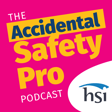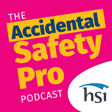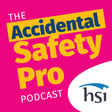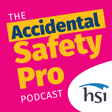
118: A Conversation with ASSP's 2024 Outstanding Safety Educator
Jill had the pleasure of speaking with ASSP's 2024 Outstanding Safety Educator, Dr. Leslie Stockel! Leslie is an associate professor of professional practice at Oklahoma State University, and teaches in the Fire Protection and Safety Engineering Technology program. She shares how her father helped her find her passion through firefighting, which lead to her experiences as a safety professional in various industries. Leslie also talks about her journey to becoming an educator and the importance of teaching safety management and prevention activities. She highlights her recent research on significant incident and fatality (SIF) precursors in incident investigation reports, revealing the lack of consistent identification and addressing of these precursors. Leslie emphasizes the need for better investigations and communication of findings in the field of safety, and also mentions her upcoming research on virtual reality scenarios related to hazard events.



